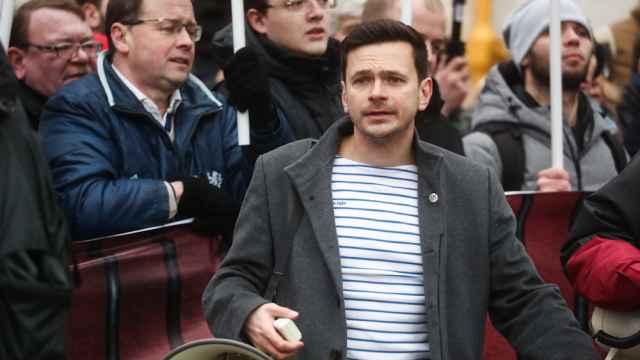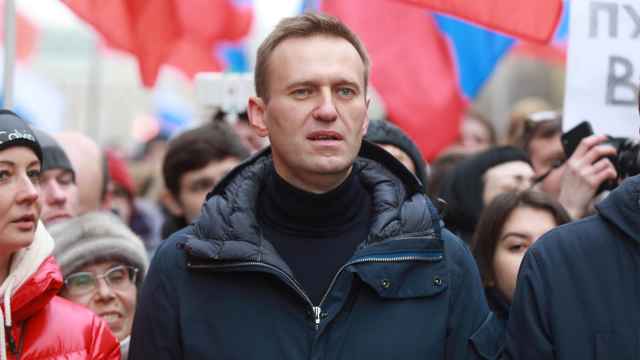Kremlin critic Alexei Navalny has been moved to an unknown location from a detention center outside Moscow where he had been quarantined, his Twitter account said Friday.
Navalny was similarly transferred from a Moscow jail last month, turning up at a Vladimir region detention center where he was under quarantine a week later. He was sentenced to two and a half years in prison for violating parole while recuperating in Germany from a near-fatal poisoning.
Navalny’s Twitter account said that his lawyers were kept waiting at the Kolchugino detention center in the Vladimir region “since the start of the workday.”
“Under various pretexts, they were not allowed to see Alexei,” it said, accusing prison officials of stalling by “inventing a holiday and someone’s illness.”
“[The lawyers] were only informed that Alexei was gone by 14:00. [Prison authorities] refused to say where,” Navalny’s account added.
Prison authorities in the Vladimir region told state media Thursday they would not announce Navalny’s transfer to a penal colony and only planned to inform his family. The Kremlin critic’s lawyer said the family has not been informed of Navalny’s whereabouts.
“Last time, we found him in the Kolchugino detention center on our own. Now, apparently, we’ve been invited to look for him again,” attorney Olga Mikhailova told the Ekho Moskvy radio station.
The Vedomosti business daily reported Thursday, citing unnamed prison service and regional administration sources, that Navalny will be transferred to a Vladimir region prison camp notorious for psychological isolation and harsh conditions.
The state-run TASS news agency cited a law enforcement source Friday as saying that Navalny had been taken to that Vladimir region prison camp.
European scientists determined that President Vladimir Putin's most vocal domestic critic was nearly killed by a Soviet-designed nerve agent Novichok and Western leaders urged Russia to investigate the incident. Navalny and his allies blame Russian security officers for carrying out the Aug. 20 attack, a claim rejected by the authorities.
The European Court of Human Rights has demanded that Russia release Navalny immediately, but Russia has refused to do so.
A Message from The Moscow Times:
Dear readers,
We are facing unprecedented challenges. Russia's Prosecutor General's Office has designated The Moscow Times as an "undesirable" organization, criminalizing our work and putting our staff at risk of prosecution. This follows our earlier unjust labeling as a "foreign agent."
These actions are direct attempts to silence independent journalism in Russia. The authorities claim our work "discredits the decisions of the Russian leadership." We see things differently: we strive to provide accurate, unbiased reporting on Russia.
We, the journalists of The Moscow Times, refuse to be silenced. But to continue our work, we need your help.
Your support, no matter how small, makes a world of difference. If you can, please support us monthly starting from just $2. It's quick to set up, and every contribution makes a significant impact.
By supporting The Moscow Times, you're defending open, independent journalism in the face of repression. Thank you for standing with us.
Remind me later.






